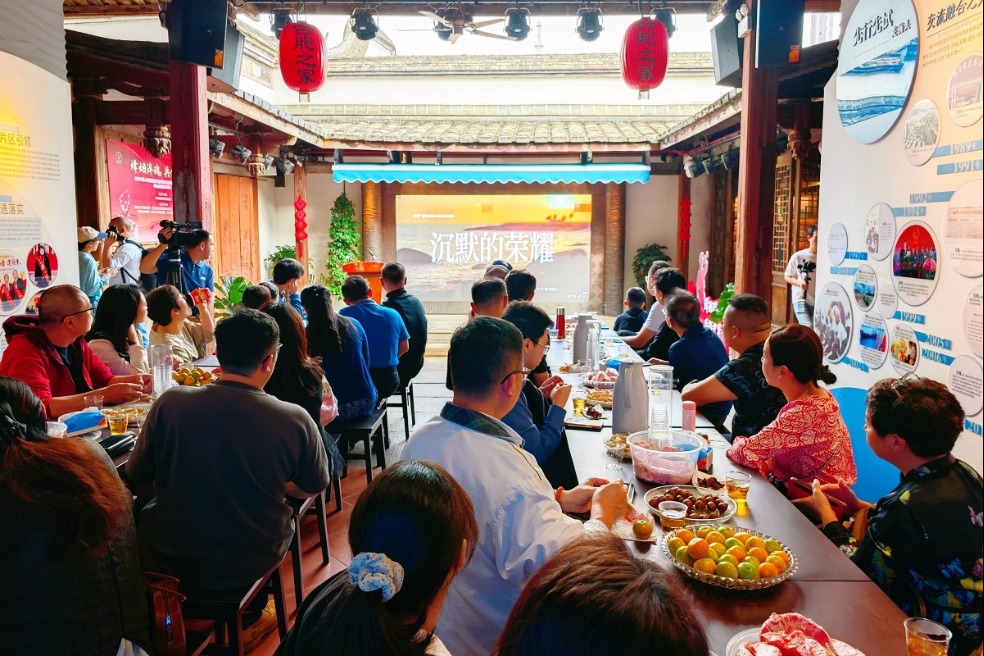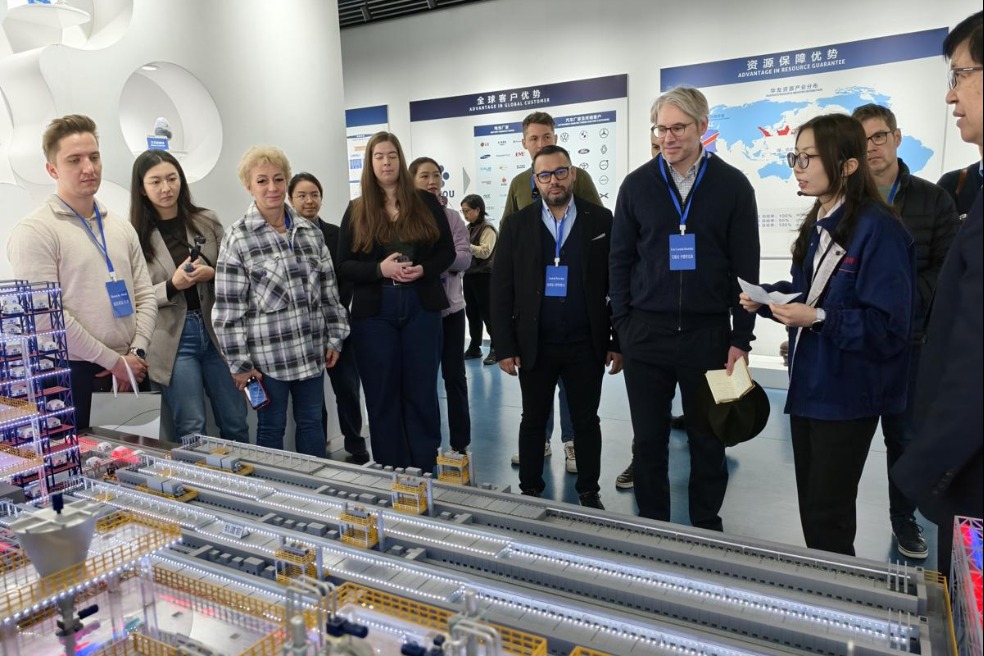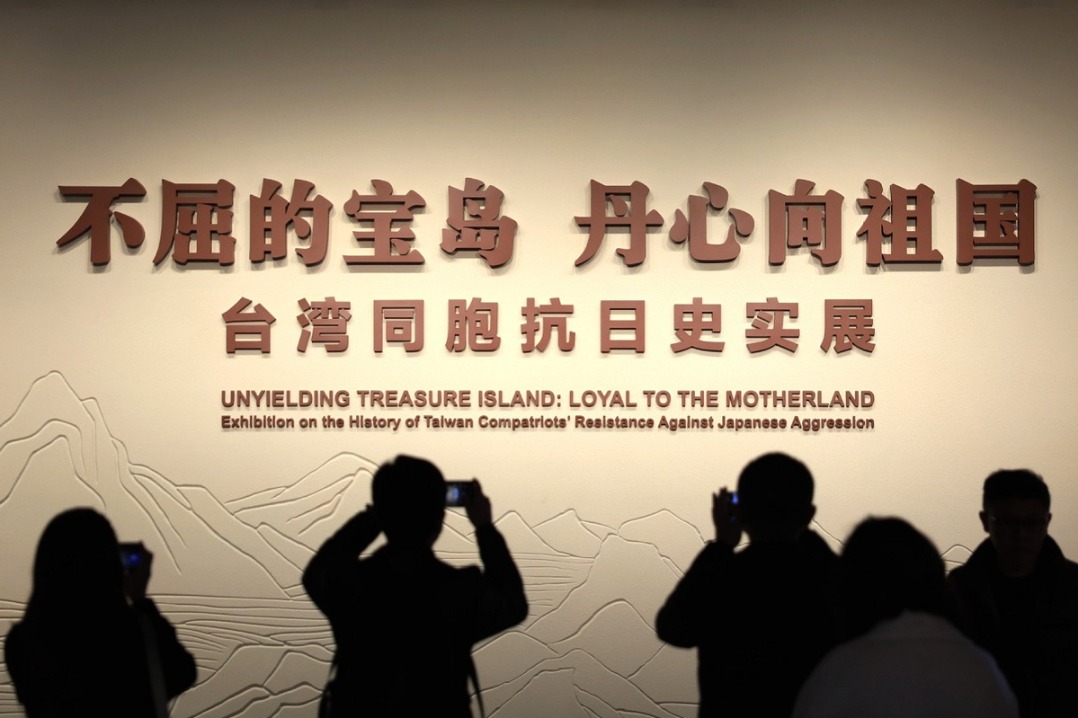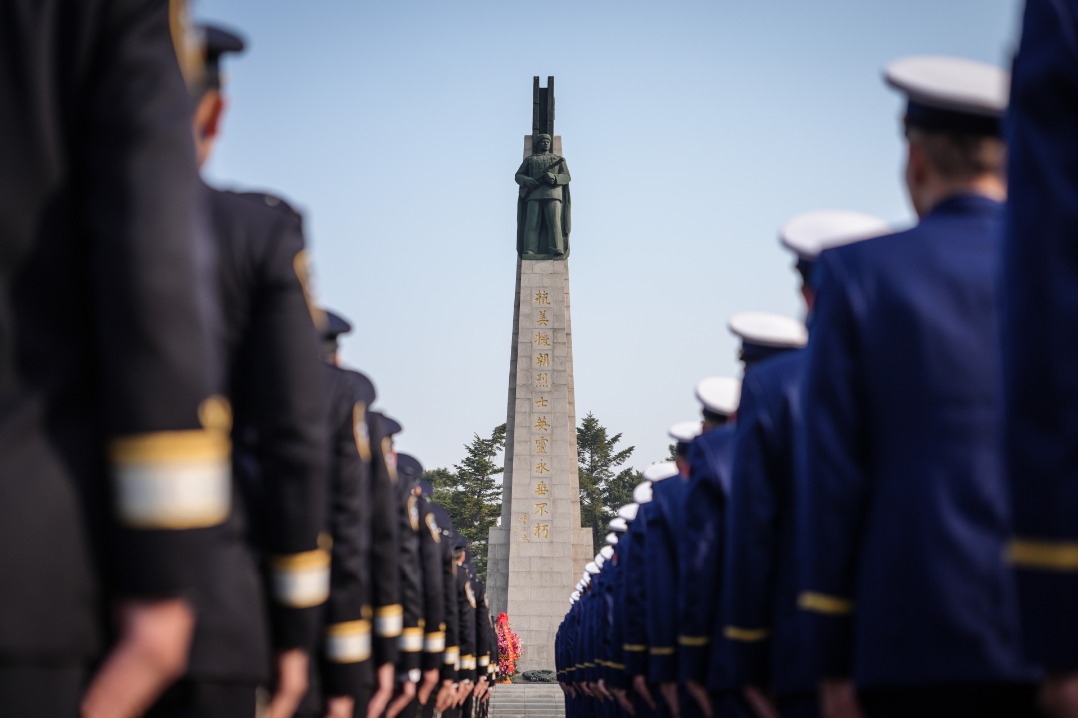Non-Communist parties contribute to major tasks
Political advisers played role in epidemic fight, ecology inspection, decision making


The non-Communist political parties in China have made important contributions to help tackle major risks and challenges in the past years as good advisers, helpers and colleagues of the Communist Party of China.
The chairpersons of these parties attended a news conference on Sunday to introduce their work during the ongoing session of the 14th National Committee of the Chinese People's Political Consultative Conference, the country's top advisory body.
He Wei, chairman of the Central Committee of the Chinese Peasants and Workers Democratic Party, which has many members from the medical sector, said that its members contributed greatly to the nation's battle against the COVID-19 epidemic.
Nearly 30,000 medical workers who are members of the party fought on the front lines of the epidemic, he said, adding that as of the end of last year, the members have donated goods and materials for epidemic control worth 1.23 billion yuan ($178 million).
The party utilized its medical resources to submit 20 pieces of information and suggestions to the CPC central leadership and the State Council, and raised their suggestions on epidemic control with the CPC in many meetings, according to He.
In the next five years, the party will focus on topics including the aging population, elderly care, childbirth support policies and major infectious diseases, he said.
Conducting democratic supervision on major tasks of the country is another job for the non-Communist political parties. Starting from 2021, the eight parties launched a five-year supervision campaign on environmental protection along the Yangtze River.
Ding Zhongli, chairman of the Central Committee of the China Democratic League, said his party is in charge of supervising the protection of the river in Yunnan province, and in the past two years they have sorted out 600 issues that needed to be further monitored after field surveys and meetings with local authorities.
"We have many environmental experts in the party, and during the supervision, we can also help Yunnan improve its skills in environmental protection," he said.
"I feel that local authorities value our efforts and I believe our supervisory work is effective," he added.
Zheng Jianbang, chairman of the Central Committee of the Revolutionary Committee of the Chinese Kuomintang, said the multiparty cooperation system that suits the country's conditions has proved to have many advantages.
"Through participation in the deliberation of State affairs, democratic supervision and political consultations, we have been able to pool various opinions and provide a reference for the decision-making of the CPC. In this way, we can form a strong joint force for State governance," he said.
- Nation marks 80th anniversary of Taiwan's restoration amid calls for reunification
- Xinjiang's Tacheng secures 10bn yuan boost for modern industrial projects
- Tianjin leads nation in geothermal energy use
- Golden Melody Awards celebrate rich cultural heritage of Hokkien music
- Jiangmen terminates Level III Chikungunya emergency response
- Civil aviation sector shows growth with release of upcoming flight season




































